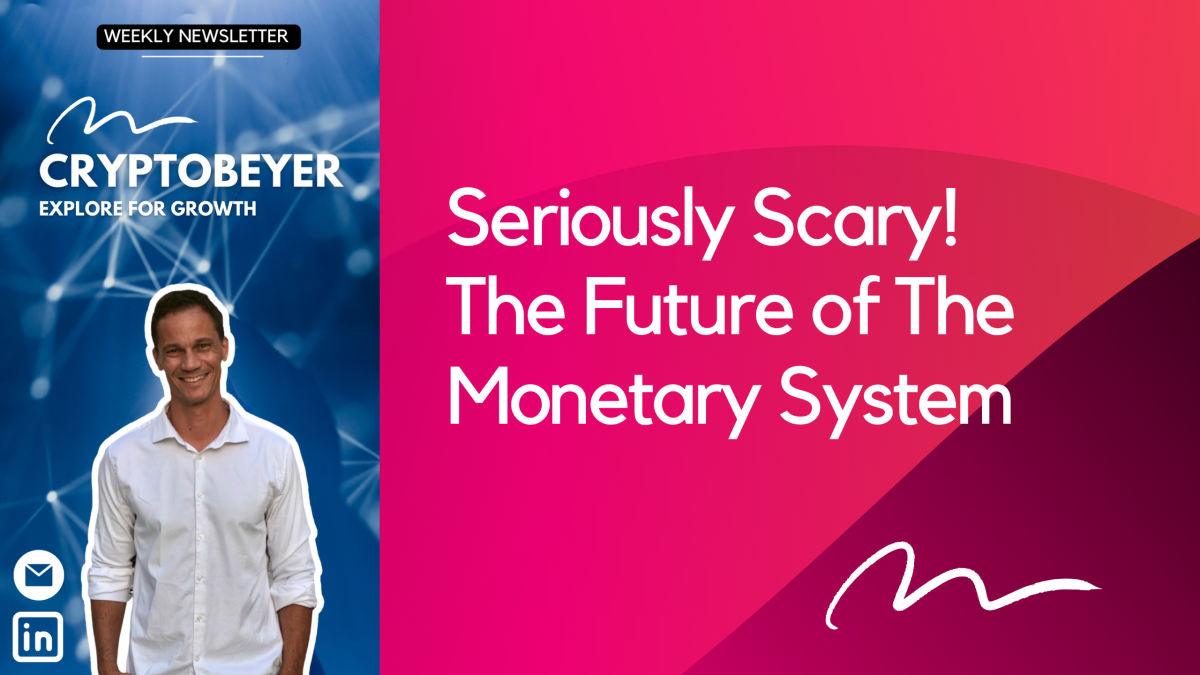The Bank for International Settlements (BIS) has presented a groundbreaking report that unveils the future of the financial system as we know it. Brace yourselves, because it’s seriously scary!
A global Central Bank Digital Currency (CBDC) system is on the horizon, where tokenization will reign supreme and individual ownership will become a thing of the past. This report, aptly titled “Blueprint for the Future Monetary System,” serves as a wake-up call to all, highlighting the relentless pursuit of central banks and governments worldwide in their quest to establish CBDCs and lightning-fast payment systems. It sure is fast but equally disheartening for our financial freedom.
Wait, what is tokenization?
Tokenization is used in cryptocurrency to represent assets as digital tokens on the blockchain. Each token represents a specific asset and has a unique identifier. This allows for fractional ownership and easier trading of assets, and cryptocurrencies pioneered this programmability of assets. But in the future monetary system, this is feared as every single one of our assets, from stocks to real estate, will be transformed into digital tokens residing on a centralized, government-controlled blockchain. Yes, you read that right – your ownership will dwindle to a mere illusion, as the power to determine which transactions you can conduct and which assets you can possess will rest in the hands of central banks and governments. I am not overstating things when I say that they will own your financial life. Dishearteningly, without tangible proof of ownership, they could brazenly declare that you never even held those assets.
But how close are we to this dystopian reality?
According to the report, we might be closer than we think. With CBDCs already being rolled out across the globe, the missing piece of the puzzle is a global settlement medium. But we are hurtling towards this transformative system at breakneck speed. I have heard that we are only 7 years away.
The report begins by underscoring how societal evolution has prompted a corresponding evolution in the concept of money. It emphasizes the digitization of the financial system that occurred several decades ago, asserting that tokenization is the next logical step in its progression.
Tokenization opens a whole new possibility to create opportunities to trade basically anything and will create a new trading market. In fact, CEO Larry Fink of BlackRock, one of the largest asset management companies, believes that the future of securities and markets lies in the tokenization of securities.
However, tokenization will also pave the way for transactions to be automatically controlled by centralized authorities. Imagine a global unified ledger where complete surveillance becomes the norm, as regulators meticulously track every single transaction. Wholesale CBDCs will ultimately replace physical cash.
I foresee a scary scenario where all foreign currencies are digitized as CBDCs, traded on the same global ledger. Compliance with know-your-customer (KYC) and anti-money laundering (AML) regulations will improve, but I have serious privacy concerns. Some say that only commercial banks and users will have access to transaction-related sensitive information. But I do not believe big-brother will not be able to take their eyes and hand off mine and your financial life. After all, centralized control often erodes privacy. We have learned that in the internet era, where the centralization of data in a few servers owned by companies (read Meta, Google) makes it easier for governments to access electronic communications without public disclosure.
The societal impact of a global CBDC system is nothing short of profound. But I warn of potential infringements on individual privacy, personal freedoms, and the concentration of power in the hands of a select few. That is not the good part of digitalization of money.
It’s clear, the world stands at the precipice of a monumental transformation, and it is our collective responsibility to shape it in a manner that reflects the values and aspirations of society. How important is your financial freedom?

